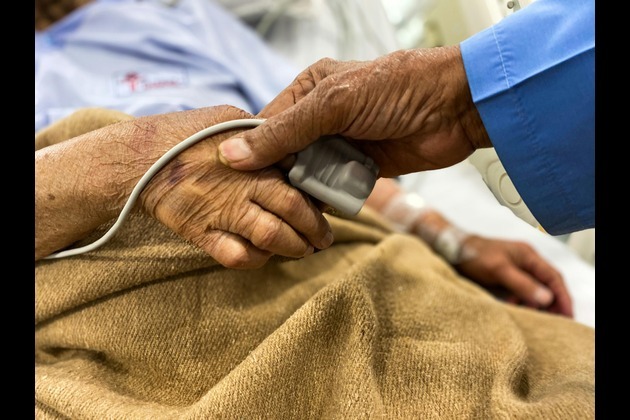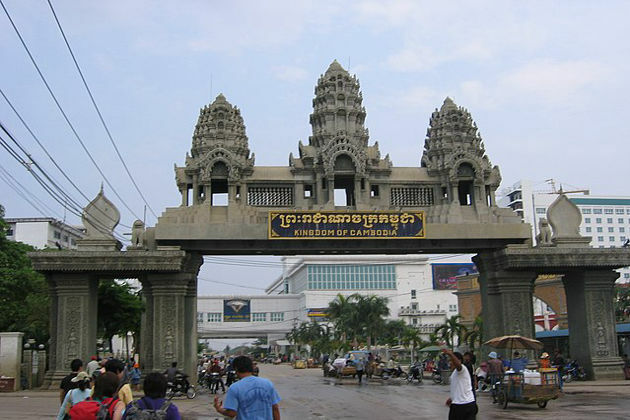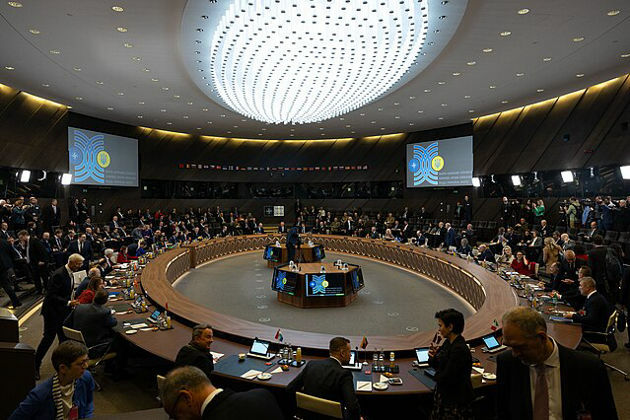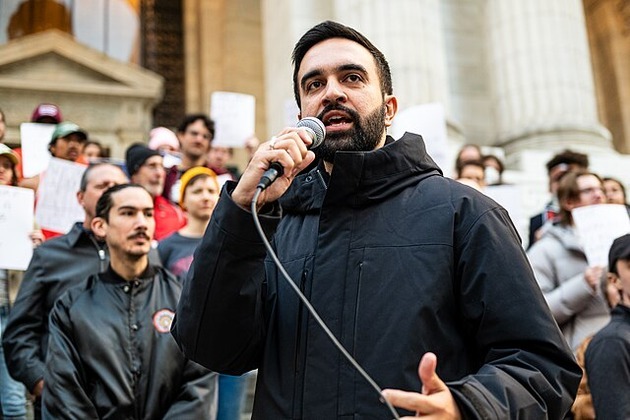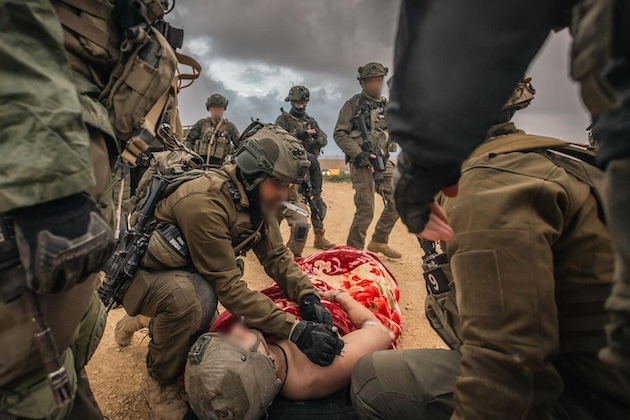Proscribing Palestine Action: Questions and Issues for the UK
E-International Relations
27 Jun 2025, 18:07 GMT+10
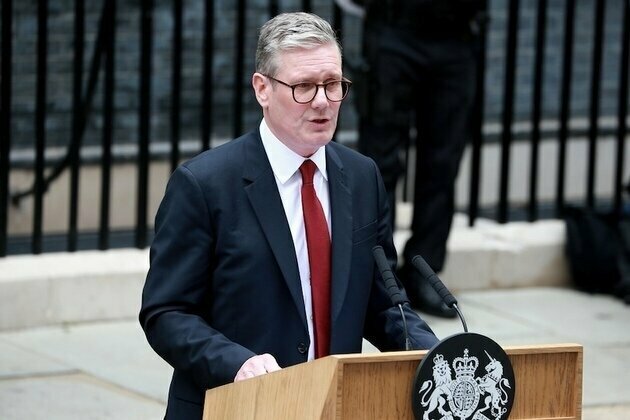
Lee Jarvis and Tim Legrand
Download PDF
Jun 27 2025
0
viewsfredduval/ShutterstockThe UK governments proposal to ban the group Palestine Action has shone a spotlight onto one of the most severe state powers: the power to proscribe an organisation as terrorist under the Terrorism Act 2000. Activists from the group last week allegedly broke into the RAF base Brize Norton, damaging military aircraft and prompting urgent questions of where the bounds of tolerated and legitimate political protest lie in modern Britain. As a matter of principle, most scholars on this topic agree that proscription powers sit uncomfortably in a modern liberal democracy. The freedom of association is a fundamental tenet of liberalism and a cherished human right, and interfering with that freedom can evoke the sinister spectre of illiberalism at best, and at worst authoritarianism. The executives use of proscription in the UK is frequently described as a severe power for precisely this reason, and ministers that reluctantly wield it perhaps do so with a wary eye on the not-so-distant slippery slope.
Nonetheless, the prevailing political consensus in UK politics is that proscription powers are an effective, even if politically uncomfortable, means to curtail organisations unambiguously bent on political violence. Banning powers in various legal guises have in fact been broadly accommodated in the UK and other liberal democracies for centuries. Parliament, notably, introduced theAct of Proscription in 1746to counter the growing threat of the Jacobite movement in the Scottish Highlands, while todays Terrorism Act 2000 offers what might be seen as the most recent iteration of such powers. Since the legislation was enacted 25 years ago, the government have banned a total of 81 organisations, and appended to that list are a further 14 organisations listed under earlier legislation relating to the conflict in Northern Ireland.
If Palestine Action is indeed added to the list of Proscribed Organisations on 30th June, as seems likely, they will become the 82nd addition to a gallery of organisations complicit in, at one extreme, the most appalling acts of mass violence, atrocities and human rights abuses, and at the other extreme, groups that have been vocal supporters of those forms of violence. Al Qaeda was amongst the first of such organisations added in 2000, and others to have been added include Hamas established in 1987 and proscribed in full in November 2021; Hizballah founded in 1982 and proscribed in 2019; Palestinian Islamic Jihad proscribed in 2001; and the Popular Front for the Liberation of Palestine-General Command (PFLP-GC) formed in 1968 and proscribed in 2014.
When this decision to proscribe Palestine Action is confirmed and, once the order is laid before Parliament, proscription decisions are as close to a foregone conclusion as we have in the UK legislative process it will become a criminal offence, amongst other things, to belong to the organisation, invite support for the organisation, express support for the organisation, attend meetings on behalf of the organisation, and wear clothing or articles supporting the organisation. Any committing of these offences would risk significant prison sentences of up to 15 years and fines of up to 5000.
The Home Secretarys statementdelivered on 23 June 2025 saw Yvette Cooper offer both familiar and unfamiliar arguments in setting out the case for proscribing Palestine Action. Familiar was the moral condemnation of this groups disgraceful and unacceptable actions, and the Home Secretarys emphasis on the capabilities of an organisation with its footprint in all 45 policing regions in the UK. Familiar, too, from earlier uses of this power was thereference to international commitments and responsibilities, with the positioning of proscription as part of a wider framework of responsible British engagement in the world.These references are important,in part, because they help clarify the proportionality of proscription in this case, given the discretion that is available to the Home Secretary to take into account factors such as an organisations scale, and the extent of its presence in the UK.
What is less familiar, and ultimately most contentious, is that the fundamental determination in a proscription order is that the group is deemed to be concerned in terrorism. In many cases, this provision has attracted little argument few, for instance, would contest the banning of ISIS or al Qaeda on these grounds. But the description of Palestine Actions involvement in terrorism using evidence of the groups damage to property including military aircraft has been widely and publicly contested.
To get at the governments reasoning, we need look no further than the Home Secretarys order, which states that Palestine Action is to be added to the list because its actions have been undertaken with the aim of progressing its political cause (Section 1 (c) under the Terrorism Act 2000), and influencing the government (Section 1 (b)), through serious damage to property (Section 2(b)), and by creating panic among staff who feared for their safety as pyrotechnics and smoke bombs were thrown creating a serious risk to the health or safety of the public (Section 2 (c)).
We can be reasonably sure that the Home Secretarys description of Palestine Action as a legitimate target for proscription is not intended to persuade the parliamentarians who will debate the proscription order next week. Proscription decisions have never been challenged by the formal political opposition, even when they involve clusters of very different organisations. Indeed, the debate more resembles a sort ofpolitical ritual of familiar speech and action that proceeds toward its inevitable conclusion: the banning of additional organisations.
Instead, this positioning appears to be calibrated to challenge critics of the government includinghigh profile novelistswilling torisk right-wing outragefor whom Palestine Actions activities fit more comfortably beneath the heading of political activism, or, perhaps, criminal damage, than they do under the heading of terrorism. This is not an organisation facing proscription because it stands accused of bringing death or serious physical violence to any person.
One of the problems highlighted by these debates is that the legal definition of terrorism in the UK like all definitions of terrorism has sufficient plasticity within it to enable its application to an extremely wide range of organisations. On top of this, the proscription process, as noted above, also builds in further discretion to the UK executive, which is why it encourages criticisms around consistency and the intrusion of unrelated concerns in the application of this power to different groups and their members or supporters. To illustrate: while one of the members of the bandKneecap has recently been charged for displaying a flag in support of Hezbollaha proscribed organisation a short walk around areas of Belfast will show houses adorned with flags, posters, and architecture celebrating (or commemorating) the also proscribed Ulster Volunteer Force.
These questions of consistency speak to wider concerns that Palestine Actions proscription sitswithin a broader context of exceptionalising, and/or the draconian clamping down upon, Palestinian activism more generally.The reasons for such a trend might be multiple, including the UKs close political ties to the US and Israel, the racialised interpretation of Israels critics, and sympathy or compassion for legitimate fears amongst Jewish communities in the UK. While it is true that the UKs list of proscribed organisations is more plural than it was in the past with recent years having seen the addition of a number of far-right organisations to the list groups associated with political Islam, or with Muslim-majority conflicts, contexts, and countries, remain prominent thereon.
The wider question raised by Palestine Actions proscription, is, however: what does this do for political rights and protections more broadly? Will this open the door to subsequent listings of other activist or protest organisations whose activities fall short of the type of violence many would associate with terrorism? These are legitimate concerns for at least three reasons. First, the UKs proscription list tends only to expand over time such that only four groups have ever been removed from it after their inclusion. Second,is the tendency of politicians to use proscription decisions as an opportunity to advocate for further expansions of the list, asking why other groups with ostensibly similar motives and actions are not being treated in the same manner. Third, and relatedly, the proscription order opens up the possibility that any new and subsequent activist group will be treated as merely an alias for Palestine Action. This is because the Terrorism Act (2000) enables the government to treat such groups as one and the same, with their members subject to the same criminal penalties:
In this final use, the proscription of Palestine Action might be taken to contain the means of stemming all and any organised political activism connected to Palestine in the UK, which ultimately could be the most severe, and overlooked, consequence of this proscription order.
These trends, importantly, are not party political: similar or related dynamics have been evident across the twenty-five years or so since the emergence of the UKs proscription regime. They also might encourage us to ask whether Palestine Actions proscription should be inserted within a much larger history of banning resistance or oppositional organisations, as witnessed in the British states use of such powers to quash anti-colonial movements in its overseas territories throughout the twentieth century.
Further Reading on E-International Relations
- Why Time Matters When Proscribing Terrorist Groups
- Opinion The Role of Smart Power and Collective Action in the Israel-Palestine Conflict
- Opinion How Inclusive is Inclusion When it Comes to Palestine?
- Seeing Through the Fog of Justice in Israel and Palestine
- The Israel-Palestine Conflict and the Effects of Trade Sanctions
- Contexts and Questions Around the UKs New Protect Duty
About The Author(s)
Lee Jarvisis Professor of International Politics at Loughborough University, UK, Adjunct Professor in the School of Social Sciences at the University of Adelaide, Australia, and Honorary Professor at the University of East Anglia, UK.
Tim Legrandis acting Deputy Dean (Research Performance) for the Faculty of Arts, Business, Law and Economics (ABLE) at the University of Adelaide, and co-editor of the Australian Journal of International Affairs.
TagsIsrael-Palestine ConflictPalestinePalestine ActionTerrorismUnited Kingdom
 Share
Share
 Tweet
Tweet
 Share
Share
 Flip
Flip
 Email
Email
Watch latest videos
Subscribe and Follow
Get a daily dose of Belfast Bulletin news through our daily email, its complimentary and keeps you fully up to date with world and business news as well.
News RELEASES
Publish news of your business, community or sports group, personnel appointments, major event and more by submitting a news release to Belfast Bulletin.
More InformationNorthern Ireland
SectionAmazon still trails UK grocers on fair supplier treatment
LONDON, U.K.: Amazon has once again been rated the worst major UK grocery retailer by its suppliers when it comes to following fair...
UK and France issue heat warnings as temperatures climb
LONDON/PARIS: British and French authorities have warned people to stay safe as an early summer heat wave brings unusually high temperatures...
Confused bot named Alyssia replaces human response on Iranian phones
DUBAI, U.A.E.: British Iranians living in the U.K. are taken aback when they try to reach their families in Tehran on the phone and...
Assisted dying bill clears key hurdle in UK Parliament
LONDON, U.K.: In a landmark moment for Britain, lawmakers in the House of Commons have voted in favour of legalising assisted dying,...
Bhatia 35th as Scheffler takes 3-way lead with Thomas, Fleetwood at Travelers
Cromwell [US] June 22 (ANI): Akshay Bhatia was tied-35th after a round of even par 70, which included an eagle in the Travellers Championship....
Extension to the term of appointment of the Chair of the Safeguarding Board for Northern Ireland
Extension to the term of appointment of the Chair of the Safeguarding Board for Northern Ireland Date published: ...
International
SectionU.S. government sues Maryland court over pause in migrant deportations
WASHINGTON, D.C.: In a striking escalation of tensions between the executive and judicial branches, the Trump administration has filed...
Thailand-Cambodia tensions rise as border rules tighten
BANGKOK, Thailand: This week, Thailand implemented land border restrictions, including a ban on tourists traveling to Cambodia, as...
Alliance eyes major military buildup to counter Russia
THE HAGUE, Netherlands: NATO is pressing ahead with a sweeping new defense spending target, calling on all 32 member nations to commit...
Mamdani leads NYC mayoral race in stunning upset over Cuomo
NEW YORK, U.S.: A political newcomer is on the verge of reshaping New York City politics. Zohran Mamdani, a 33-year-old state assemblyman...
Millions endure dangerous US temperatures, heat alert issued
MADISON, Wisconsin: Tens of millions of residents across the Midwest and East Coast faced dangerously high temperatures over the weekend...
Multiple Israeli troops die as armored personnel carrier is blown up in Gaza
KHAN YOUNIS, Gaza - Seven Israeli soldiers were killed in a large explosion in southern Gaza's Khan Younis area on Tuesday night,...




